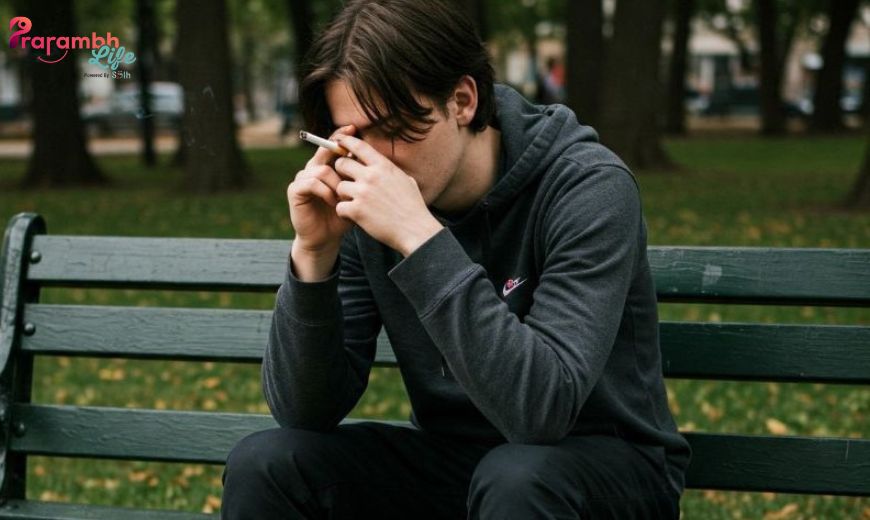
Nobody chooses addiction. It sneaks up, taking control bit by bit. Recovery, though? That's absolutely a choice – one that takes courage and determination.
Substance abuse isn't just about using. It's that relentless loop: cravings hit, you use, feel temporary relief, then withdrawal crashes in. Before you know it, you're back where you started, only more profound in the hole.
This cycle tears through everything – your physical health, thoughts, relationships, work, and identity. Breaking free requires more than just deciding to stop. You need a plan, proper treatment, and people who have your back.
The Challenge of Breaking Free
Addiction tangles together biological, emotional, psychological, and social factors. Following extended substance use, your brain undergoes a reconfiguration. Alcohol, opioids, cocaine, and prescription medications inundate your brain with dopamine. Over time, your brain ceases to produce its own dopamine and relies on the substance merely to experience pleasure normal.
At this stage, willpower by itself is insufficient. This issue isn't a result of personal frailty; it stems from significant changes in brain chemistry. When you factor in trauma, stress, mental health struggles, and adverse environments, it creates an ideal mix of triggers. Even after someone has quit, the pressures of life can swiftly lead them back to previous habits without adequate coping strategies or mechanisms.
That's why real recovery digs more profound than just stopping. It means healing every aspect of your life that addiction has touched.
Proven Treatment Approaches
Everyone's journey looks different, but these options have helped countless people:
Detoxification (Medical Detox)
Getting substances out of your system is step one, but doing it alone can be dangerous. Withdrawal from alcohol or opioids can cause severe symptoms – tremors, nausea, hallucinations, even seizures. Medical detox provides professional supervision to manage these symptoms safely.
Detox is just the beginning, though. It clears your body, but your mind still needs healing.
Inpatient Rehabilitation
Inpatient rehab provides a structured and substance-free environment for those struggling with severe addiction or co-occurring mental health challenges. Residents adhere to a daily routine that includes therapy, group sessions, and educational programs focused on recovery, all while being away from daily triggers.
This intensive method offers a vital fresh start for many individuals in need.
Outpatient Treatment Programs
Not everyone can pause their life for inpatient care. Outpatient programs let you live at home while attending regular treatment sessions. Options include:
- Partial Hospitalization Programs: Several hours daily, five days weekly
- Intensive Outpatient Programs: Less time but still structured
These are effective for mild to moderate addiction when you require support while balancing work or family responsibilities.
Medication-Assisted Treatment
For alcohol or opioid addiction, medications like methadone, buprenorphine, or naltrexone can be game-changers. They reduce cravings, ease withdrawal, and help your brain adjust to functioning without substances.
MAT works best with therapy – It's a support tool, not a shortcut.
Behavioral Therapies
Therapy is where deeper healing happens. It helps you understand why you developed addiction and how to change those patterns:
- Cognitive Behavioral Therapy helps identify negative thought patterns and replace them
- Dialectical Behavior Therapy focuses on emotional regulation and stress management
- Motivational Interviewing builds internal motivation for lasting change
These methods not only aid in recovery but also foster personal growth as a person.
Support Groups & 12-Step Programs
Hearing someone say, "I've experienced that as well" holds immense power. Communities such as AA and NA offer support and a sense of belonging in times of need most.
Not comfortable with 12-step approaches? Alternatives like SMART Recovery offer secular, science-based support. These groups provide connection, accountability, and hope from people who truly understand.
Holistic & Alternative Therapies
Recovery encompasses your entire being – mental, physical, and spirit:
- Yoga, meditation, and mindfulness calm your nervous system
- Art, music, and equine therapy provide emotional outlets
- Exercise and nutrition rebuild physical health
These complementary approaches let you customize your healing journey.
Technology's Role in Modern Recovery
Digital solutions are transforming recovery. Platforms like Prarambh Life show that healing doesn't require physical attendance at clinics or meetings.
These tech tools offer:
- AI-powered mood tracking to catch emotional triggers early
- Personalized recovery plans
- Stress monitoring systems
- Virtual buddy systems for peer support
For many, especially those concerned about privacy, these digital options provide stigma-free ways to heal and bridge the gap between formal therapy and daily life.
Creating Sustainable Recovery
Recovery continues long after formal treatment ends. It's a lifelong commitment that becomes more natural over time.
Effective long-term recovery includes:
- Learning to recognize and respond to your specific triggers
- Ongoing aftercare through support groups, check-in counseling, or recovery apps
- Involving family in the healing process, since addiction affects everyone connected to you
The key ingredients? Consistency, support networks, and self-compassion.
Conclusion
You're not broken. You're not weak. And you're definitely not alone.
Addiction is a medical condition, not a moral failing. Recovery happens every single day for people from all walks of life. People just like you are stepping out of addiction's cycle into lives filled with clarity, purpose, and peace.
The appropriate treatment is out there. Help is accessible. Indeed, the path can be tough – yet endlessly worthwhile.
If you or someone you care about is struggling with addiction, reach out now. Whether through detox, therapy, tech platforms like Prarambh Life, or support groups, take that first brave step.
Because life beyond addiction is possible, and it can start today.

